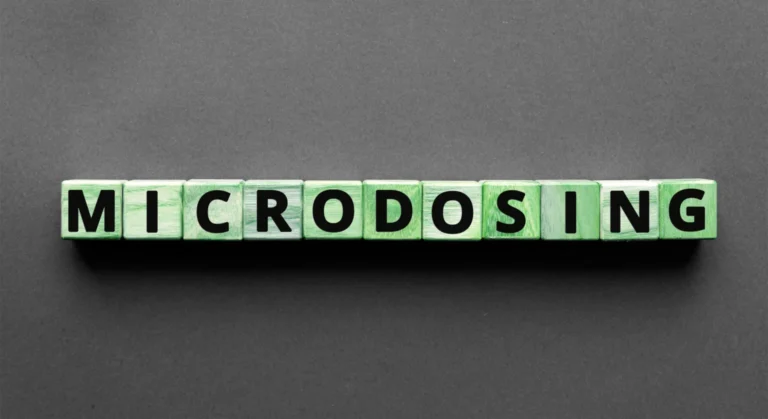Does Delta 9 Help With Anxiety
Delta-9-tetrahydrocannabinol (THC), more commonly known as Delta 9, is the primary psychoactive component found in cannabis. Renowned for inducing the euphoric “high” typically associated with marijuana, Delta 9 is also gaining interest for its potential implications on mental health, particularly in the realm of anxiety. As anxiety disorders become increasingly common, with millions seeking effective solutions, many are turning to cannabinoids like Delta 9 to explore their therapeutic potential. But can Delta 9 truly alleviate anxiety?
Delta 9’s Interaction with the Endocannabinoid System
To grasp how Delta 9 might affect anxiety, it’s crucial to examine its interaction with the endocannabinoid system (ECS). The ECS is a sophisticated cell-signaling network present throughout the body, playing a vital role in regulating mood, stress, and emotional reactions. This system comprises receptors, endocannabinoids, and enzymes that collectively work to maintain balance, or homeostasis, within the body.
Delta 9 primarily binds to CB1 receptors within the ECS, which are plentiful in the brain and central nervous system. When these receptors are activated, they can influence neurotransmitter release, thereby affecting mood, memory, and the perception of stress. This mechanism may clarify why some users report sensations of relaxation and relief after consuming Delta 9, as stimulating these receptors may help soothe overactive stress responses. However, it’s important to note that individual reactions to Delta 9 can vary significantly based on factors like tolerance, dosage, and genetic predisposition.
Exploring Delta 9’s Anxiolytic Properties
For some individuals, Delta 9 can provide temporary relief from anxiety symptoms. Small doses of Delta 9 are known to promote relaxation and elevate mood, potentially easing anxiety in a manner similar to anxiolytic medications by lessening the brain’s response to stress. Furthermore, Delta 9 may enhance overall well-being by boosting dopamine levels, a neurotransmitter associated with happiness and motivation.
Research indicates that Delta 9 might also influence the amygdala, a brain region crucial for processing emotions like fear and anxiety.

Delta 9 and Its Role in Alleviating Anxiety
Delta 9 has a notable influence on the amygdala, a brain region often associated with anxiety responses. By moderating hyperactivity in the amygdala—common in individuals with anxiety disorders—Delta 9 may help individuals approach stressful situations with a more composed mindset.
Factors Affecting Delta 9’s Efficacy for Anxiety
While Delta 9 holds promise for anxiety relief, its effectiveness can vary based on several factors such as dosage, individual tolerance, and consumption method. Lower doses of Delta 9 tend to have calming effects, while higher doses can sometimes exacerbate feelings of anxiety or paranoia. This phenomenon, known as the biphasic effect, highlights the importance of dosage management, as excessive Delta 9 can lead to overstimulation, particularly in those new to cannabis.
Personal biochemistry also influences how Delta 9 affects each individual. Some may experience heightened sensitivity to its psychoactive effects, which can trigger adverse reactions like increased anxiety. For those predisposed to anxiety, it’s advisable to start with smaller doses and carefully monitor their response. Additionally, the choice of cannabis strain and its terpene profile can play a role in anxiety relief; strains rich in calming terpenes, such as myrcene and linalool, may enhance the overall anti-anxiety effects.
Recognizing Risks and Limitations
Despite its potential benefits, Delta 9 is not a universal remedy for anxiety. Chronic or excessive use can lead to dependency and may ultimately worsen anxiety symptoms over time. Moreover, Delta 9’s psychoactive properties may hinder performance in situations requiring mental clarity and focus, such as work or social interactions.
Research indicates that long-term Delta 9 use could alter the endocannabinoid system (ECS) function, possibly diminishing its natural ability to manage anxiety. This effect, known as tolerance, arises when consistent exposure leads to a down-regulation of CB1 receptors, reducing Delta 9’s effectiveness. Hence, moderation and mindfulness in usage are crucial to sustaining its potential benefits for anxiety.
Exploring Alternative Cannabinoids for Anxiety Relief
For individuals who experience negative effects from Delta 9, alternative cannabinoids like cannabidiol (CBD) may provide anxiety relief without the psychoactive high. CBD interacts with the ECS differently than Delta 9, promoting a sense of calm without intoxication. Combining CBD with Delta 9 in a balanced formulation could be another effective strategy, as CBD may mitigate some of Delta 9’s more stimulating effects. This combination has shown promise in promoting relaxation while reducing the likelihood of heightened anxiety or paranoia, leading to a more harmonious experience.
The Future of Delta 9 in Anxiety Management
Research on Delta 9’s relationship with anxiety is ongoing, and while initial findings are encouraging, more exploration is needed regarding its long-term effects and potential drawbacks. As studies delve deeper into the intersection of Delta 9 and mental health, a clearer understanding of its role in anxiety management may emerge.
For those contemplating the use of Delta 9 for anxiety relief, consulting a healthcare professional is advisable. A qualified provider can offer insights into proper dosing and potential interactions with current medications. While Delta 9 is not a replacement for professional mental health treatment, it may serve as a complementary approach for those seeking alternative strategies for managing anxiety symptoms.






